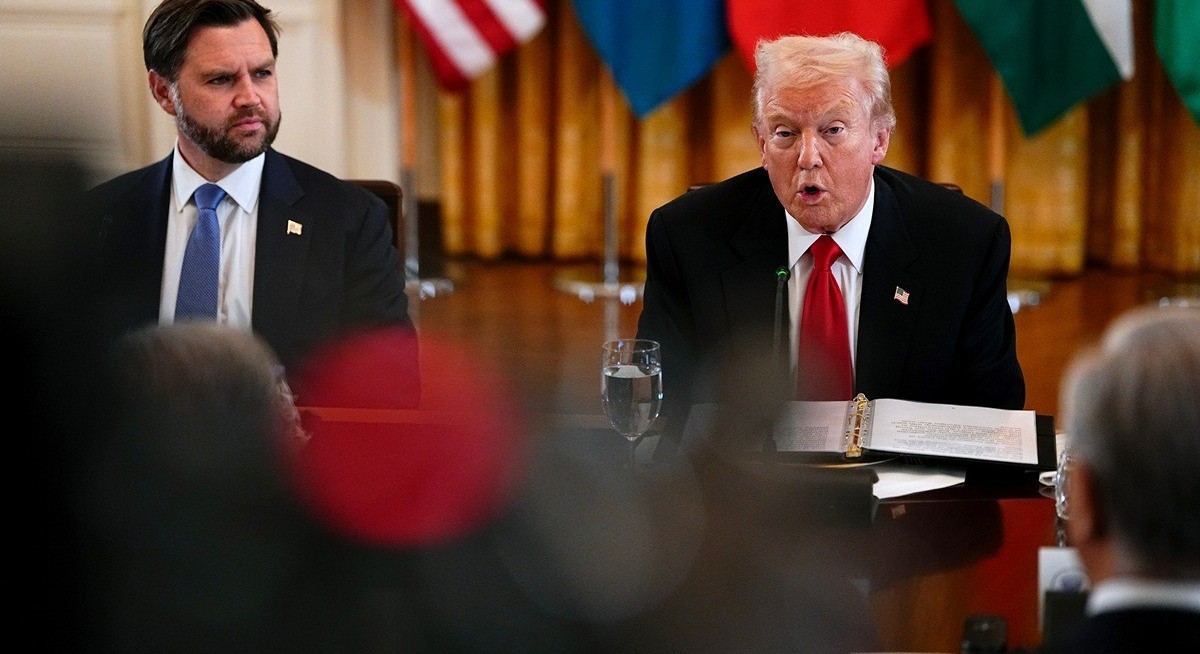(Nov 7): US President Donald Trump said during a meeting with five Central Asian countries on Thursday that he would look to diversify critical minerals purchases, as the US seeks to address China’s dominance in rare earths critical to advanced technology manufacturing.
“One of the key items on our agenda is critical minerals,” Trump said at a dinner with the leaders of Kazakhstan, Uzbekistan, Kyrgyzstan, Tajikistan and Turkmenistan at the White House on Thursday. “In recent weeks, my administration has strengthened American economic security by forging agreements with allies and friends across the world to broaden our critical mineral supply chains.”
Last week, Trump brokered a deal with China’s Xi Jinping that saw the US roll back tariffs in exchange for Beijing removing planned export restrictions on critical minerals used in everything from cell phones to jet engines. But with only a temporary truce in place, the White House is continuing to seek alternative suppliers.
“We’re strengthening our economic partnerships, improving our security cooperation, and expanding our overall bonds,” said Trump, who is eager to bolster his ties with the energy- and mineral-rich region.
The summit marked the first time a US president has hosted the group — known as the C5+1 — at the White House, as Washington tries to assert influence in a region long dominated by Russia and China. Former US president Joe Biden held a similar gathering in New York in 2023.
The five Central Asian states possess vast mineral resources, including rare earth elements and uranium, which played a key role in the Soviet Union’s nuclear programme.
See also: China halts levies on US farm goods after fentanyl duty cuts
Earlier on Thursday, Bloomberg reported the Trump administration had helped a US private company strike a deal to purchase a majority stake in Kazakhstan’s largest undeveloped supply of tungsten.
US-based Cove Capital LLC has taken a 70% ownership stake in two deposits from Kazakhstan’s sovereign wealth fund, which will retain 30% ownership, according to a statement seen by Bloomberg.
Tajikistan President Emomali Rahmon told Trump that his country wanted to expand economic and trade cooperation with the US, pitching his rare earths deposits as a way to help manufacture the next generation of artificial intelligence data centres.
See also: Gold rebounds as wider market selloff reinvigorates haven demand
The Central Asian states also stand to benefit from a partnership with the US, as they have been looking to diversify their economic and security relationships after Russia’s full-scale invasion of Ukraine in 2022, which sparked a wave of international sanctions against Moscow.
But they must tread carefully. Lately, the US has been increasing pressure to prevent sanctions evasion, which could stoke tensions in the region. For Central Asia, Russia remains a crucial security and economic partner, as well as a destination for millions of migrant workers earning money to send home.
Trump on Thursday alluded to his efforts to broker a ceasefire between Kyiv and Moscow, and also encouraged countries to normalise relations with Israel. Earlier, Kazakhstan announced that it was joining Trump’s Abraham Accords, a framework designed to normalise diplomatic and economic ties with Israel.
“I‘m optimistic that each of the countries here today will reap the benefits of peace if they embrace the opportunity that we’ve unleashed,” Trump said.
Attendees at the meeting also announced a series of planned economic deals, including an announcement that the nations cumulatively sought to purchase 40 Boeing Co jets.
Trump, in a social media post, said Uzbekistan would invest more than US$100 billion in the US over the next 10 years, which would be a substantial sum for a country with a gross domestic product (GDP) of just under US$115 billion in 2024, according to data compiled by the World Bank. The White House didn’t immediately respond to a request for further information on the scope of the accord.
The group’s powerful neighbours have also been nurturing their relationships in the area. Russian President Vladimir Putin held a summit of his own with the Central Asian leaders in Tajikistan last month, and Chinese leader Xi Jinping met with them in June to discuss boosting investment under his signature Belt and Road infrastructure programme.
European Union leaders in April also signed a strategic partnership with the five countries during the first EU-Central Asia summit in Uzbekistan, which includes an investment programme worth around US$13.8 billion for transportation links, critical minerals and energy.
Uploaded by Liza Shireen Koshy




